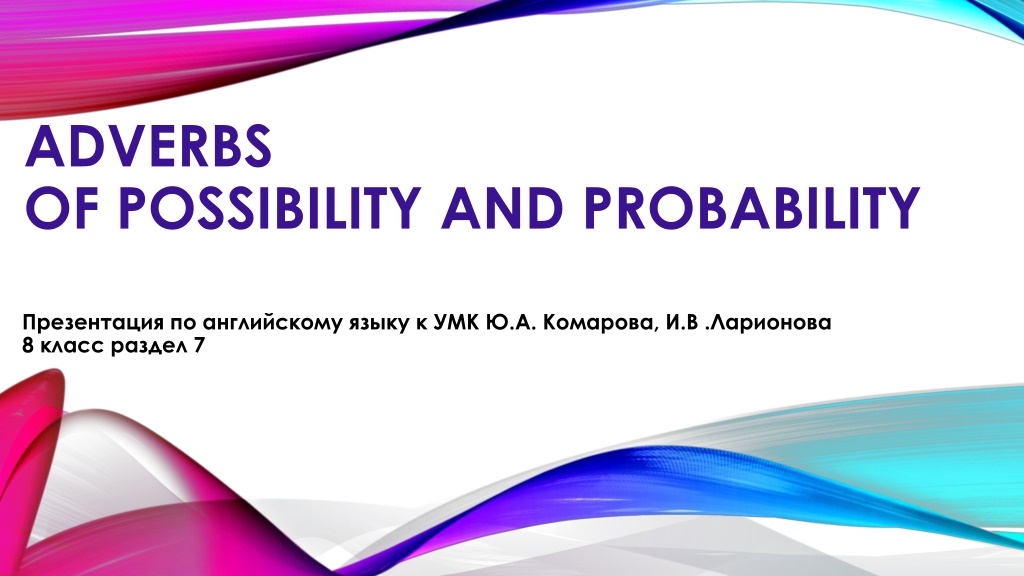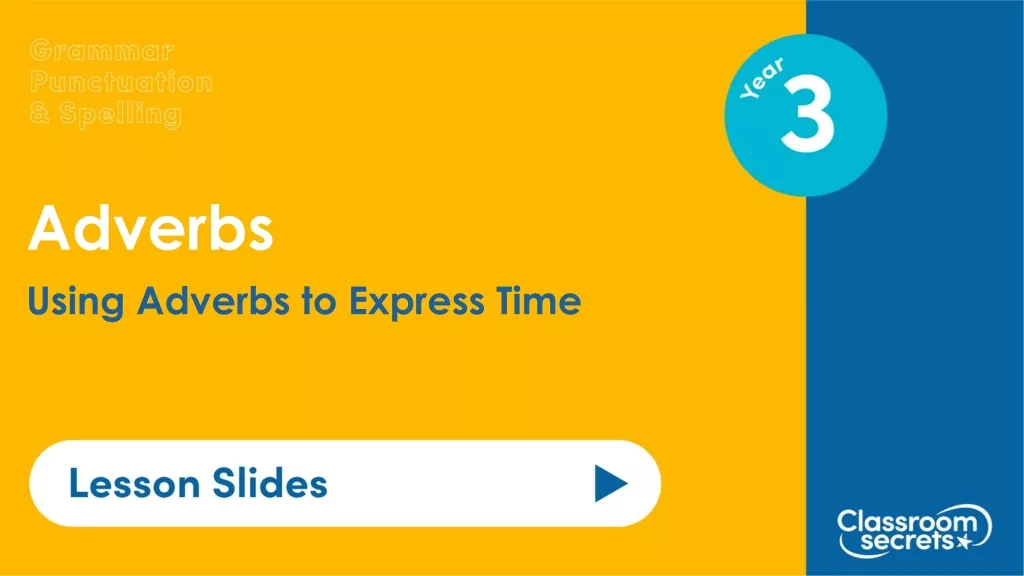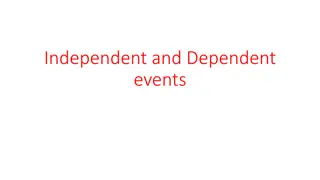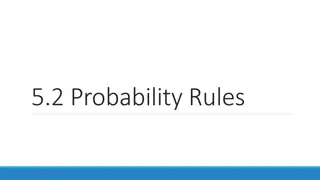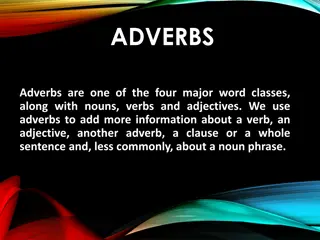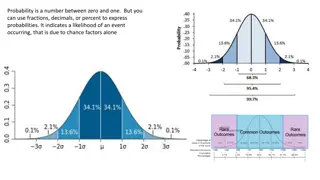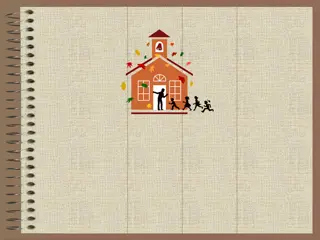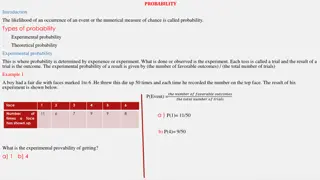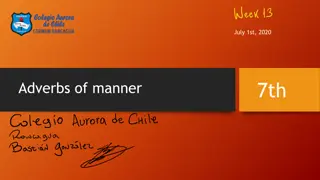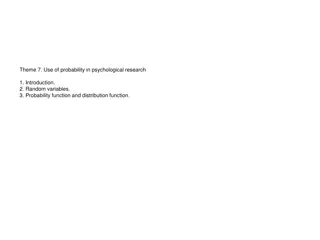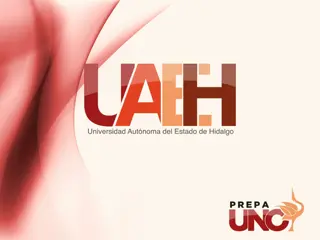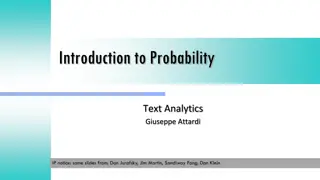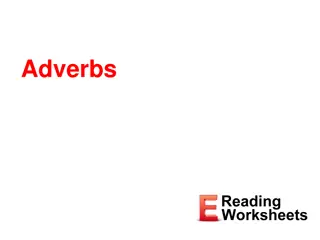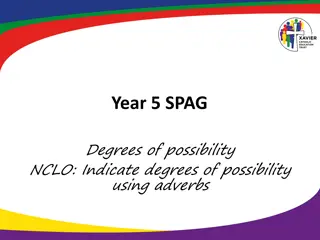Adverbs of Possibility and Probability
Adverbs of possibility and probability indicate the likelihood of an action or state occurring. They include words like "certainly," "indeed," "perhaps," "probably," and "maybe." These adverbs can be positioned at the beginning of a clause or before the main verb, depending on the context. Understanding the placement of these adverbs enhances clarity and precision in expressing levels of certainty.
Download Presentation

Please find below an Image/Link to download the presentation.
The content on the website is provided AS IS for your information and personal use only. It may not be sold, licensed, or shared on other websites without obtaining consent from the author.If you encounter any issues during the download, it is possible that the publisher has removed the file from their server.
You are allowed to download the files provided on this website for personal or commercial use, subject to the condition that they are used lawfully. All files are the property of their respective owners.
The content on the website is provided AS IS for your information and personal use only. It may not be sold, licensed, or shared on other websites without obtaining consent from the author.
E N D
Presentation Transcript
ADVERBS OF POSSIBILITY AND PROBABILITY . . , . . 8 7
Adverbs of possibility and probability Show the chances for the action or state to happen. They answer the question How likely? They are: certainly ( ), indeed ( ), perhaps ( ), probably( ), maybe ( , )
POSITION OF ADVERBS 1. Maybe and perhaps usually come at the beginning of the clause: -Perhaps I will go to the park later. -Maybe we ll come after all. 2. Other adverbs of possibility / probability usually come in front of the main verb: -She will certainly forget about it. -Will they definitely be there? 3. After the present simple or past simple of be: -They are definitely at home. -He is probably in trouble.
POSITION OF ADVERBS 4. Adverbs of possibility/probability go after affirmative auxiliaries (will, would, can ) - He will probably come after classes. - I will definitely call you. 5. Adverbs of possibility/probability go before negative auxiliaries (won t, wouldn t, can t ) - He definitely won t come after classes. - I probably won t call you.
Write the sentences with the adverb in the correct place. 1.He is too tired to come (perhaps) 2.She was very emotional (clearly). 3.I m too busy tomorrow; could I come the day after? (possibly) 4.The student would pass the exams. (probably) 5.He has misunderstood the instructions (obviously). 6.My uncle will visit us soon. (maybe) 7.They are at home (certainly). 8.The message never arrived (maybe ). 9.They will go on holiday next. (definitely)
